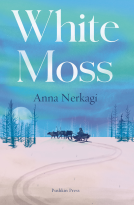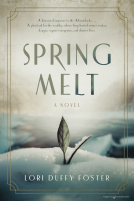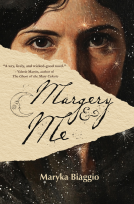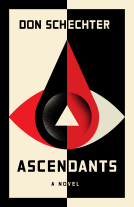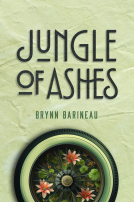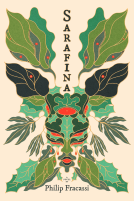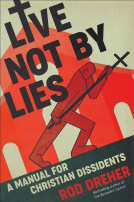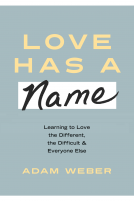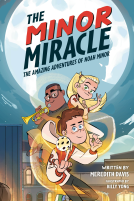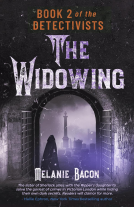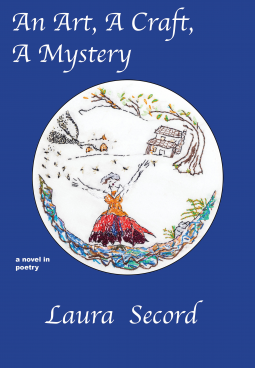
An Art, A Craft, A Mystery
a novel in poetry
by Laura Secord
This title was previously available on NetGalley and is now archived.
Send NetGalley books directly to your Kindle or Kindle app
1
To read on a Kindle or Kindle app, please add kindle@netgalley.com as an approved email address to receive files in your Amazon account. Click here for step-by-step instructions.
2
Also find your Kindle email address within your Amazon account, and enter it here.
Pub Date Mar 02 2001 | Archive Date Jul 28 2023
Talking about this book? Use #AnArtACraftAMystery #NetGalley. More hashtag tips!
Description
This novel in verse tells the stories of two historical women, Lydea Gilbert and Katherine (Kate) Harrison, who lived along the frontier of the Connecticut River in the mid 1600s. They were healers, midwives, farmers and ordinary women who faced the struggles and joys of life in a wild new land. They were women in a puritan culture, women of intuitive genius and healing powers, who lived through times where feminine power and the value of women’s lives was suspect and condemned.
Marketing Plan
Review copies, Kirkus, author readings.
Review copies, Kirkus, author readings.
Available Editions
| EDITION | Paperback |
| ISBN | 9781604893038 |
| PRICE | $17.95 (USD) |
Available on NetGalley
Average rating from 8 members
Featured Reviews
 Fran E, Reviewer
Fran E, Reviewer
London, early 1600's. Women must know their place: Keep the coals ablaze and the hearth warm, attend to the young'uns and make the bread. Men, in endless discourse in the meetinghouse, discussed sin and redemption. Narrow minds wielded all the power.
Lydea Gilbert lost her husband and three young children to the plague. "To glorify their tender souls, I strive to nurse those suffering and work to tend the living...". Lydea and her niece Kate walk, "through scourge infested alleys, cradle child after child, try to sustain lives."
Lydea and Kate have chosen temporary bondage, selling themselves for passage to the colonies. "Self sold and adrift to unknown lands." In Connecticut, "the air smells evergreen and trees outnumber men." "Sabbaths, we sit for hours in the meetinghouse...so much concern for thoughts of evil, blind to the good in everything." This blindness fueled the witchcraft hysteria in 1600's Connecticut.
Kate's travails were for Captain Cullick of Hartford. "I hear the cows call for milking, the pigs for slop. Just a low girl...After dark, I become another girl who pretends among her peers to have a skill with fortune telling...Let them believe my skill. Let them think I am more than what mistress call me...I elevate myself with storied talk." Lydea is sent to the farm of Henry Stiles, a grief stricken widower. His unattended fields will now bear crops. She dwells in his cellar house in Windsor. Women must just "stock the larders...for long I've known a women can't ask much but a dry cot and small beer come the dusk." It's all about power. One must align oneself with those on the right side. Accuse a neighbor of being a witch. Will this earn a person protection against being accused? Scapegoats are always needed. Others must be blamed for hard times, poor crop yields, unexpected death.
"An Art, A Craft, A Mystery: A Novel-in Verse" by Laura Secord is the story of two lesser known competent women, Lydea Gilbert and Kate Harrison who were accused of witchcraft. During the witch trials in 1600's Connecticut, "the magistrates and ministers are dressed in solemnity, yet the throng outside is noisy as a carnival." Written in verse, this masterfully written historical novel, based upon extensive research including trial transcripts and witness testimony, paints a grim picture of colonial life in the towns of Windsor and Wethersfield. Kudos to Laura Secord for highlighting the lives of two remarkable women. Highly recommended.
Thank you Livingston Press at the University of West Alabama and Net Galley for the ARC in exchange for an honest review.
 Reviewer 463267
Reviewer 463267
This story of two historical women who were accused of witchcraft in the 1600s in Connecticut is told in free verse. While the trials and the fear of being accused of being a witch was a presence in the novel it was not the focus. Instead, it was the joy, struggle and sorrow of living in wild, new land. These women were wives, mothers and daughter. Also, healers, midwives and farmers. They had knowledge of plants and an appreciation of nature which comes out in lyrical passages that I won’t forget any time soon.
The lives of women in the 1600s in Colonial America have often been overlooked by history texts, except for a special few, and the sources were scarce. However, because these two women were brought to trial accused of being witches there were quite extensive court records which reveal details about them which was unusual. The author, through extensive research and effort to recreate the inner lives of these women, created a wonderful and beautiful testimony of the richness and tragedy of colonial times for women.
It is a quick read but one that can be read multiple times with a new appreciation each time. I enjoyed it a great deal. Thanks to Netgalley and the publisher for an ARC in exchange for an honest opinion.
I adore this historical fiction but the cover and the font leaves much less to desire. I wish they put more effort into making it prettier. Historical fictions are not the norm and a good cover would have been able to led more people to this beautiful piece of art.
 Nicole C, Reviewer
Nicole C, Reviewer
This novel-in-verse is unlike anything I've read before. Although poetry is not my strong suit, I found these quite accessible, and the narrative going through them was easy to follow. It was quite a fast read as well, but I'm sure would be good to re-read.
More than that, this story was powerful and gripping. I was audibly gasping at times and it was really heart-wrenching. Kate is a fantastic character, but both women were really fleshed out and compelling. This book shows the reality of the cruelty towards women living in this period. It's clearly well-researched, but it didn't feel like a history book. The writing craft is executed very well. It was so sad, but ended on a really great note with a fantastic last line.
I did at times find it a bit hard to keep track of some of the secondary characters. Due to the nature of the structure of the book, it's not easy to remind the reader who everyone is. Also in the author's note, she mentions wondering if the women were actual witches. I know that's a take on the witch trials that a lot of people take, but I wasn't clear if that's what she was suggesting in this particular book? If it was, that was totally lost on me. I thought it was more about how interacting with the Native population and/or owning property meant the patriarchal society saw them as a threat, but then when I read that in the notes I wondered if I misread the entire book.
Regardless of that, this book was a great read and I'd highly recommend it!
This novel in verse tells the stories of two historical women, Lydea Gilbert and Katherine (Kate) Harrison, who lived along the frontier of the Connecticut River in the mid-1600s. Like their mentor Anne Hutchinson, these women were healers, midwives, farmers, and ordinary humans who faced the struggles and joys of life in a wild new land. Unfortunately, they lived in a puritan culture where women with intuitive genius and healing powers were suspected and condemned for showing their feminine power.
This book shows how characters with steadfast endurance were betrayed by patriarchal power. According to this quote at the beginning of the book, "We kept the small alive from day to day, kept households warm, kept bread made. While men sat in the meetinghouse in ceaseless debate on sin, redemption, destiny, their grace came through women’s works— watching fires and keeping coals ablaze. Their salvation came through women’s hands, gathering each day’s yeasted scraps for tomorrow’s meal, a sacred pact. Don’t think these skills were simple, they were an art, a craft, a mystery, yet when the men took notice, they doubted diligence and named it witchery."
I enjoyed this book. It's packed with history and is a pleasure to read. Also, I connected with the women. In an age where they faced death for helping others, they stood tall as examples for women today.
Some of my favorite quotes:
"About the trial of Anne Hutchinson in 1637 - they plan to break her, reduce her, force her to let go of her ideals, and lay herself open."
"I drift from the preacher’s doom, doubting his message. So much concern for thoughts of evil, blind to the good in everything."
"This assertion of personal communion with God is rebellion, the free gift of God’s grace, needs strict discipline."
"The contest, true— to learn endurance through the harshest things."
"The only salve to cure these bitter sorrows is the juice of wild memory."
Readers who liked this book also liked:
L.M Montgomery
Children's Fiction, Comics, Graphic Novels, Manga, Teens & YA
